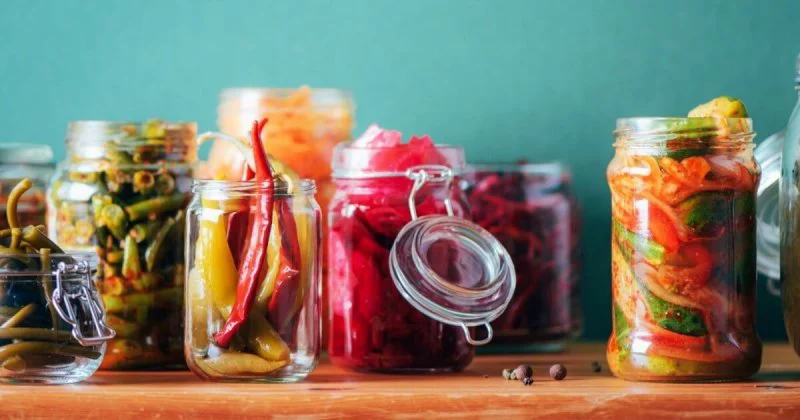Precision fermentation: How humans harness microbe-based biochemistry to make food more delicious
Precision fermentation: How humans harness microbe-based biochemistry to make food more delicious


Humans have been harnessing microbe-based biochemistry for food preservation since before history began. Without lactic-acid fermentation a bumper crop of cabbage would rot uneaten.
With the right microbes, salt and time it can be turned into sauerkraut.
Ethanol fermentation raises bread and fizzes champagne.
Acetic-acid fermentation provides vinegar and thus pickling, not to mention the peerless lambic beers of the Zenne Valley in Belgium.
Now that food technologists have genome sequencing and gene editing at their disposal they are exploring a realm of “precision fermentation” in which microbes can be chosen, or engineered, for very specific purposes.
The breakthrough took place in 1990, when Pfizer used the genetic-engineering techniques previously used to make medicines such as insulin to create a microbe that produced the clotting agent found in rennet, which is used to curdle milk proteins into cheese.
Rennet was previously sourced from the fourth stomachs of unweaned calves, which is inconvenient. The engineered version is now used in most mass-market cheeses.
…
Scientists think the right microbes in the right fermenters could eventually produce abundant saturated fats, such as those in avocado or coconut oil, to give a rich texture to plant-based meat-substitutes.
This is an excerpt. Read the original post here.

 | Videos | More... |

Video: Nuclear energy will destroy us? Global warming is an existential threat? Chemicals are massacring bees? Donate to the Green Industrial Complex!
 | Bees & Pollinators | More... |

GLP podcast: Science journalism is a mess. Here’s how to fix it

Mosquito massacre: Can we safely tackle malaria with a CRISPR gene drive?

Are we facing an ‘Insect Apocalypse’ caused by ‘intensive, industrial’ farming and agricultural chemicals? The media say yes; Science says ‘no’
 | Infographics | More... |

Infographic: Global regulatory and health research agencies on whether glyphosate causes cancer
 | GMO FAQs | More... |

Why is there controversy over GMO foods but not GMO drugs?

How are GMOs labeled around the world?

How does genetic engineering differ from conventional breeding?
 | GLP Profiles | More... |

Alex Jones: Right-wing conspiracy theorist stokes fear of GMOs, pesticides to sell ‘health supplements’




 Viewpoint — Fact checking MAHA mythmakers: How wellness influencers and RFK, Jr. undermine American science and health
Viewpoint — Fact checking MAHA mythmakers: How wellness influencers and RFK, Jr. undermine American science and health Viewpoint: Video — Big Solar is gobbling up productive agricultural land and hurting farmers yet providing little energy or sustainabilty gains
Viewpoint: Video — Big Solar is gobbling up productive agricultural land and hurting farmers yet providing little energy or sustainabilty gains Trust issues: What happens when therapists use ChatGPT?
Trust issues: What happens when therapists use ChatGPT? Fighting deforestation with CO2: Biotechnology breakthrough creates sustainable palm oil alternative for cosmetics
Fighting deforestation with CO2: Biotechnology breakthrough creates sustainable palm oil alternative for cosmetics California, Washington, Oregon forge immunization alliance to safeguard vaccine access against federal undermining
California, Washington, Oregon forge immunization alliance to safeguard vaccine access against federal undermining 30-year-old tomato line shows genetic resistance to devastating virus
30-year-old tomato line shows genetic resistance to devastating virus The free-range chicken dilemma: Better for birds, but with substantial costs
The free-range chicken dilemma: Better for birds, but with substantial costs ‘You have to treat the brain first’: Rethinking chronic pain with Sanjay Gupta
‘You have to treat the brain first’: Rethinking chronic pain with Sanjay Gupta
